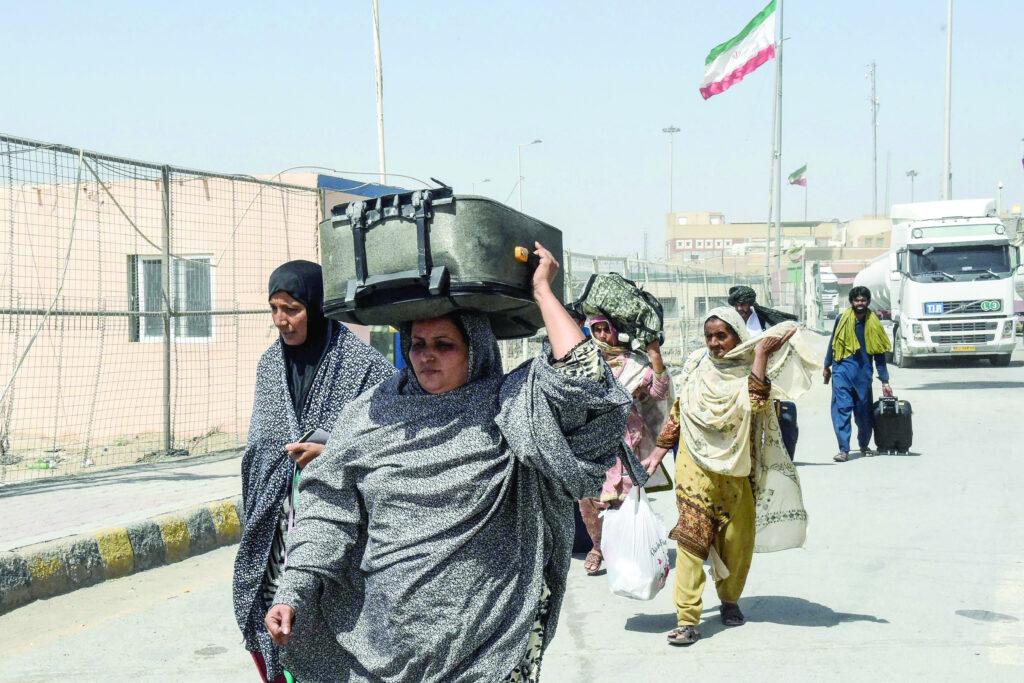TAFTAN:
Mohammad Hassan eagerly returned to Pakistan from neighboring Iran Iran this week after witnessing drones, missiles and explosions tearing through Tehran’s sky under what he called long, “horrible nights”.
The 35-year-old University of Tehran student is one of about 3,000 Pakistanis who, according to the Ministry of Foreign Affairs, has returned since Israel launched his air war against his long-standing enemy last week.
Governments around the world are encrypted to evacuate their citizens trapped in the rapid spiraling conflict as Israel and Iran Handels Missil and Drone strike.
“I was in the city center where most of the strikes took place, and even one of the students dormitory was attacked, and fortunately no death, but students were injured,” Hassan said.
There are more than 500 Pakistani students at his university alone, he said, all on the way “at home”.
“Those days and nights were very awful … to hear sirens, cried, the danger of being hit by missiles. When you looked out the window at night, you could see drones, missiles with fire tails,” he told AFP.
Mohammad Khalil, a 41 -year -old petroleum engineer, left Tehran three days ago, the capital of the Islamic Republic, resembling a ghost town when residents protected indoors and families fled.
“For the past two days, I saw people moving out of town in different vehicles with necessary ingredients,” Khalil said.
Abdul Ghani Khan sells medical devices in Peshawar and travel regularly to Iran for supplies.
He had been to Tehran for a week when the first Israeli missiles fell on Friday.
Khan had to travel home by road because the airspace is now closed. Pakistan has also closed its border crossings with Iran to everyone except Pakistanis who want to return home.
“We saw drones, red lights of aircraft weapons, and I discovered that a building was firing,” Khan said.
Mohammad Asif, a lawyer from Lahore in Pakistan’s East, heard about the air strikes while on a pilgrimage in Qom. Originally, he was not scared and continued his pilgrimage to Mashhad.
That was, until Israeli strikes hit the airport in Mashhad, almost 1,000 kilometers (620 miles) from the Pakistani border.
Samreen Ali was also in Mashhad, but just like Asif cut her turn short and returned with her husband and 15-year-old son. She prayed in a mosque in Mashhad when Israel hit the city.
Ali said she had visited Iran nine times before on pilgrimage and never imagined to witness war there. “I offered prayer when I heard two explosions,” she told AFP.
She then noticed that she did not receive messages on her phone and assumed “communication was limited … because of the war”.
Syed Saqib, 46, was in Qom and had to travel 500 kilometers (310 miles) by bus southeast to Yazd. “We had to take alternative routes, spend a whole night waiting for a bus terminal,” Saqib said.
They then boarded buses to Zahedan, a city near the border with Pakistan’s Balochistan Province. A relieved Saqib remembered to make the border transition at Taftan, surrounded by families carrying heavy luggage.



